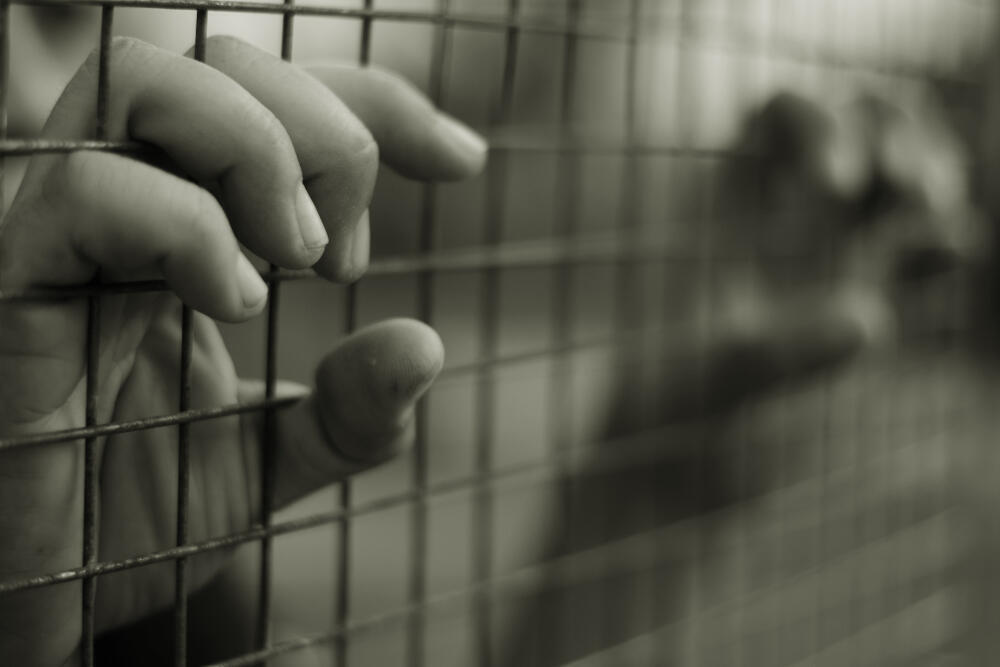"Minutes after I first met Raz and Aviv, my little daughters aged 4 and a half and 2 and a half, and until now, they haven't stopped talking," Yoni Asher, whose wife Doron and two daughters returned from Hamas’ captivity last week, shared on his Facebook post on Sunday.
More stories:
He added his daughter Raz told him "Dad, you’re lucky you didn't go on the tractor with us," and Aviv added, "The evil man lifted me, and I cried." These are words that are hard to bear. But Yoni continues to share nonetheless: "I keep myself together, respond calmly, and explain patiently. This is how I've been for a week, close to them, never leaving, just holding them."
A little over a week has passed since the Israeli captives were released, and the testimonies confirming all the anxious thoughts that accompanied Israel since October 7 about their conditions in captivity are starting to come together.
Still, we’re far from understanding the cruel reality in which they stayed for long weeks in Gaza. According to estimations the smiling faces appearing in photos, videos from hospitals, and social media posts of some of the released captives don’t reflect their true mental state, and the challenges continue to face.
In order to successfully rehabilitate their psyche, which has undergone severe trauma, the released captives are accompanied by skilled social workers from the Welfare Ministry, who have many years of experience in the field. However, no matter how complex the situations they encountered were, nothing prepared them for the stories they heard.
"I have ten years of experience and knowledge of trauma. I've seen everything, heard everything. This is truly something completely different," says Liat (pseudonym), a social worker accompanying one of the former captives’ families.
"We had to find a new way; it didn't exist at all. With all of our knowledge about hardships, psychological issues, and family units– in this initiative, we ventured into the unknown. We learned along the way, and we’re still learning. We hear stories that make your heart shrink to nothing. There’s a lot of pain there."
Restoring trust
Some of the captives share their experiences, while others remain silent. For some, their family members are still in captivity, while others who lost family and friends are grappling with the loss after almost two months without any knowledge of the fate of their loved ones. Many of them have lost their homes.
Between the harsh conditions they describe from captivity – hunger, violence, and stifling fear – there are still many stories they haven't found a way to tell. "Young children share what they went through in their own way, even in informal conversation - something they saw, a situation they were in, words they heard," Liat explains.
"They talk about their experiences, things they saw, about the abduction itself. When we hear this, we understand that there’s still a long road ahead for their recovery. It's only the first sign of what they are still going to go through."
Liat explains that the captives are dealing with a very significant loss of trust, and therefore, one of their primary goals is to restore their trust in people and the world: "It's the most basic, routine issue. It forms a crack in their mental fortitude, a fracture that generates trauma, and we need to heal that fracture.”
“The abduction, the conditions they were in, and the things they saw. The unexpected reality they dealt with, their lack of information on what’s happening outside, and not knowing the fate of their loved ones, or even if someone is actively looking for them. Restoring their certainty, trust, and security is a national mission," she adds.
"Restoring their certainty, trust, and security is a national mission."
The teams accompanying the families work around the clock to address all their needs, including preparing educational frameworks for their return by providing tools for school and kindergarten teachers, and guiding other parents in the class or kindergarten on how to communicate the complex reality to their children.
5 View gallery


Beds prepared for Israeli captives at Schneider Children's Medical Center
(Photo: Schneider Children's Medical Center)
"We explain what it means to have a child who was in captivity, we give parents the language they can use to talk to their children," she explains, "how do you communicate to a child that his friend from kindergarten returned from captivity in Gaza? We hold meetings for parents and support educational teams.”
“For example, children exposed to words in Arabic who will now go to school or kindergarten and use those words – this is something that needs to be mediated to the children, both to avoid creating trauma and so that other children won't mock or perceive it as something strange,” she explains.
Families in turmoil
The abductees themselves pay a psychological price, but so do their families and close friends who spent the past weeks without knowing their fate. "Their release is a very emotionally turbulent period," explains Nurit (pseudonym), a social worker accompanying one of the families.
"The families dealt with tense expectations, great excitement, and also questions –will my spouse return safely? How did captivity affect my child? The family's entire DNA has changed, and now they need to rebuild everything from scratch."
Nurit emphasizes that even if the captives’ physical appearance seems normal, and even if their behavior isn’t different than it usually was, the first days of freedom are euphoric, and some of the effects of captivity will only be revealed later.
"I think initially families experience some sense of relief because, unlike us, professionals who know that often — even if everything seems normal initially — things will emerge slowly. In the family I accompany, the former captive speaks less, and the family wants more information from her. They want to understand what she went through, and it's terribly difficult for them."
Nurit explains that the main challenge is to restore the families' sense of control: "In abduction and captivity, the basic right of choice is taken away, beginning from what to eat, where to stay, and who will be beside you. The narrative we lead in our connection with the families is about choice, even on the simplest level.”
“It also means the captives will say what suits them, when it suits them, and to whom it suits them. In this abnormal situation, we try to recreate a daily routine as much as possible. Some of the abductees find it difficult to leave their homes. They fear for themselves and their family members. Some families need a bit more time to understand this, and others want to establish a routine and begin a treatment process," she says.
According to Eti Kisos, head of the Welfare Ministry’s administration of social and personal services, there’s a significant difference between the former abductees: "Both in the experience they went through, the different conditions and people they were held by, some above ground, some below ground, some in groups, and some alone.”
“These complexities come into play here too, regarding how families accommodate this. How many encourage sharing? How many are even capable of listening properly? It's a very complex period. What we also see often is that there’s no uniform way for everyone to do this."
"Families were torn apart because some were in captivity, and some were in Israel, and what we see now after they reunite is that nothing is similar to the way it was before October 7," she adds.
"The people who were in Gaza came back different, and even those who were in Israel aren’t the same people. The coping mechanisms are different, you need to find everyone's place within the family, even before the implications of what each person went through in captivity and the trauma they experienced – to see how they can reconnect.”
"The people who were in Gaza came back different, and even those who were in Israel aren’t the same people."
“How do you bridge the gap of what was two months ago, when the person closest to you wasn’t a part of it? When suddenly you became very known in public, when you were completely anonymous two months ago."
Between empathy and sympathy
Alongside the sense of duty the social workers have toward the families they accompany, they also face difficult challenges. "Some of the stories are very hard to hear; it is hard to understand it as a civilian, and especially as a professional," Kisos says.
"It's hard to imagine that people went through such things, and there is a desire, alongside this, to hold and help them. I see a level of motivation that I don't remember seeing to this extent in the professional sector; the personnel are very dedicated and work at all hours, and there’s nothing they refuse to do."
“There are moments when you can't make a professional detachment, and neutralize the emotional aspects in these cases,” Nurit says. “The difference between empathy and sympathy is that in empathy, you step into someone else's shoes and manage to step out of them, and in sympathy, you step into their shoes and don't quite manage to step out.”






